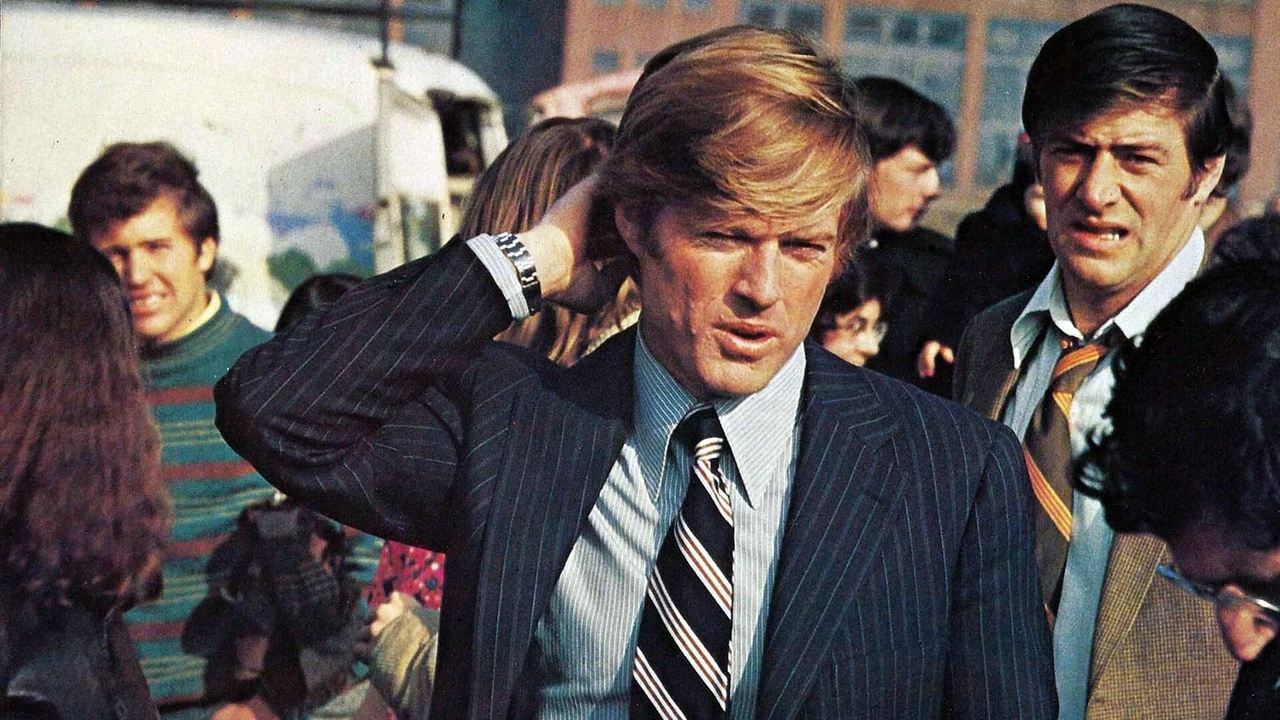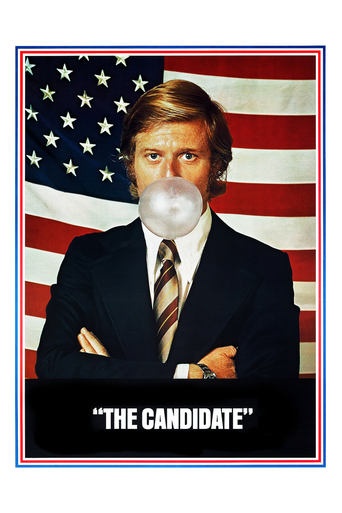

if their story seems completely bonkers, almost like a feverish work of fiction, you ain't heard nothing yet.
... View MoreThis is a coming of age storyline that you've seen in one form or another for decades. It takes a truly unique voice to make yet another one worth watching.
... View MoreThe movie turns out to be a little better than the average. Starting from a romantic formula often seen in the cinema, it ends in the most predictable (and somewhat bland) way.
... View MoreThe tone of this movie is interesting -- the stakes are both dramatic and high, but it's balanced with a lot of fun, tongue and cheek dialogue.
... View MoreI really enjoyed "The Candidate" film. I'm not aware of every Robert Redford film but he is very good in this one. The story follows the political campaign of a man who wants to be elected the senator of California. As the character in question, Robert Redford is a Democratic as opposed to his opponent who is a Republican (Don Porter). The inital attempts to win the election aren't very successful, until Redford realises that he can't succeed on his own terms. Eventually, he experiences disenchantment by having to sacrifice his own principles for the sake of winning the election. I won't reveal anything about the ending but you have to see it in order to understand it. The writing is very good and it makes a refreshing change to see an American film from this era that is more thought-provoking than ones that are just violent. I enjoyed the scene with the political television debate, it becomes a bit heated at one stage!
... View MoreThe Polished Veneer of Politics has Become Unvarnished Since this "Insider" Uncovering Circa 1972. It was Much More Interesting, For Sure, During it's Initial Release (now this stuff is common everyday knowledge), But that Doesn't Mean that it is Irrelevant or Dated or Uninteresting.The Perfect Casting of Robert Redford as an Idealist Lawyer with No Interest in Politics is Recruited to Run for U.S. Senator and Convinced to do so Because He is Told that He Can Get His Ideas Heard and in The End..."You Lose".Peter Boyle is Quite Good as the "King Maker" and the Media Machine Behind The Candidate is Convincingly Portrayed. In Fact the Whole Political Scene from the Early Seventies is Given Gravitas by the Screenplay Penned by Former Eugene McCarthy Speechwriter Jeremy Larner, and Received an Oscar for This Work.Overall, it is a Bit Startling, but Maybe Not, that the Issues Presented in the Campaign are Still Debated and Divisive Today. Also, the Rules of the Game Haven't Changed That Much Either. The Preparation, the Concessions, the Presentation, the Do's and Don'ts are Pretty Much the Same Now as Forty Years Ago.The Film was a Big Hit, a Liberal Wish Fulfillment During the Nixon Years and the Vietnam Era, but it Wasn't the Electorate or Electrifying Left Wing Candidates that Silenced (at least for a little while) the "Silent Majority". It was "Tricky Dicks" Dirty Tactics and the Cover-up and His Loathsome Vice President's (Spiro Agnew) Corruption.
... View MoreThis movie is not bad for the first hour. It shows an independent man being chosen, almost at random, to campaign to be a California representative in the U.S. Senate. He is permitted to express, at the beginning, his own independent views; but as he becomes more and more popular his politics, his speeches begin to be more and more circumscribed in order to allow him to gain political office. In other words he starts to be a "real Politician" and tow the line in order to be victorious.The latter half of the movie seemed redundant to me – it is just one long campaign trail – with speeches and meetings with crucial individuals to gain popularity. It actually was somewhat boring. See Primary Colors for a more sordid close-up of the political process.
... View MoreJeremy Larner's brilliant, behind-the-scenes look at a modern political campaign and the marketing experts who make them work stars Robert Redford as an anti-politics California liberal reluctantly drawn into a race for the U.S. Senate with the naive hope of actually making a difference. He discovers, too late, that government isn't about issues or representation, but about exposure and packaging, marching bands and American flags; in other words, all the empty flotsam which, years later, now seems to mark the entire political process. The early '70s fashions are badly dated, but the film itself is more incisive than ever, showing how campaign attitudes, and sometimes even the actual speeches, haven't changed at all since 1972. Director Michael Ritchie reinforces the near-documentary authenticity by enlisting celebrities to portray themselves, from Natalie Wood to Mike Wallace. In 1988 the film was named by then Vice Presidential candidate Dan Quayle as a career influence, despite his obviously having missed the point of it entirely.
... View More